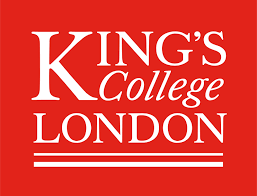1964 King’s and Decolonisation

In the decades after the Second World War, the British empire broke apart with a speed that few predicted. Geopolitical pressures, economic dislocation, and fierce resistance across colonial territories combined to undermine the basis of Britain’s claim to imperial legitimacy. This transformation in global power sent reverberations through university culture that would have profound long-term implications. Students from across colonial and former colonial territories arrived in London in greater numbers than before to study at King’s. Many experienced racism and discrimination in London, and some become involved in emerging forms of community organization and resistance in Britain. King’s alumni include some notable activists against colonialism, racism and apartheid, such as Dr. Harold Moody, Archbishop Desmond Tutu, and Helen Joseph. Following their studies at King’s, others made important contributions to the development of new Commonwealth states by taking up posts on their return home in key sectors and professions. They include a cohort of Canadian and Nigerian postgraduate history students, like Nigerian Kenneth Dike, who studied in London in the mid-twentieth century and who pioneered new national histories of their home countries, making a significant contribution to wider decolonizing processes. Others had less stellar careers at King’s. Sinnathamby Rajaratnam, who went on to become Singapore’s celebrated first post-independence Minister of Foreign Affairs, studied law at King’s, but had to give up his degree when the war blocked the flow of money from his parents in South-East Asia to fund his studies. King’s own staff also produced extensive research examining the shifting parameters of British colonial power within new Cold War constraints.
Exploring how student culture engaged with these wider questions as well as the impact of decolonisation on the profile of the student body, the curriculum and the scholarship undertaken at King’s will offer a sense of the ways in which decolonization mattered in King’s everyday life, while also illustrating the need to think about this process as having as much impact in Britain as it did across the wider empire.
King’s Futures. The multiple meanings of decolonization now
Decolonizing agendas are at the centre of current critiques of university culture and systems. They offer an analytical framework to think about how inequalities and exclusions in the present connect to a longer history. Even so, this historical context is often invoked in hazy form, with little sense of the ways in which mid-twentieth century anti-colonialism and decolonizing impulses articulated similar demands for change. How might reconnecting the history of empire’s ending offer insights relevant for now? Particularly how can an exploration of the challenge to empire, the ways King’s responded in the past offer insights into the persistence of inequality in the present?












